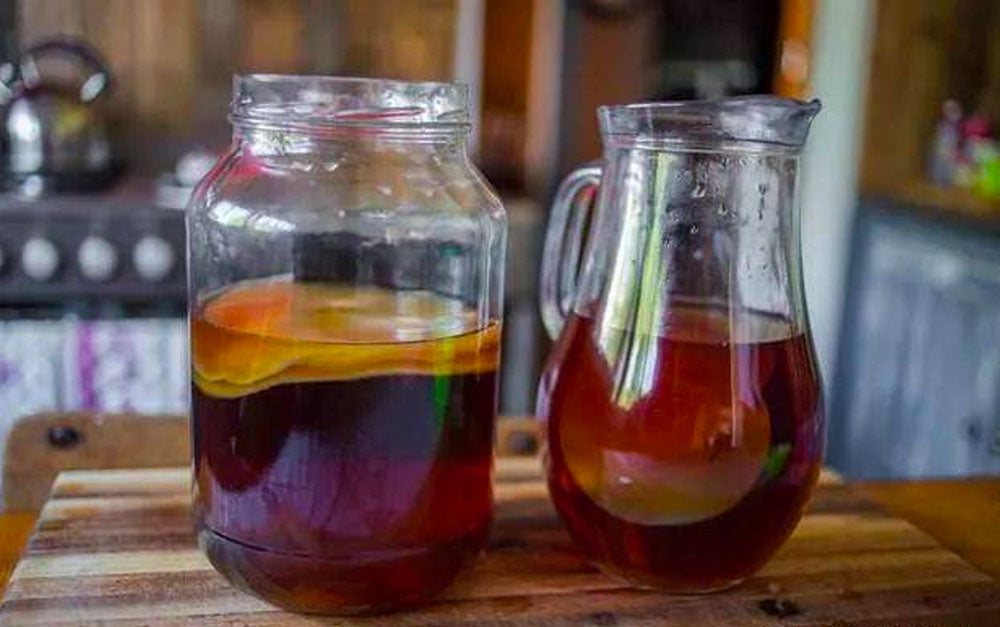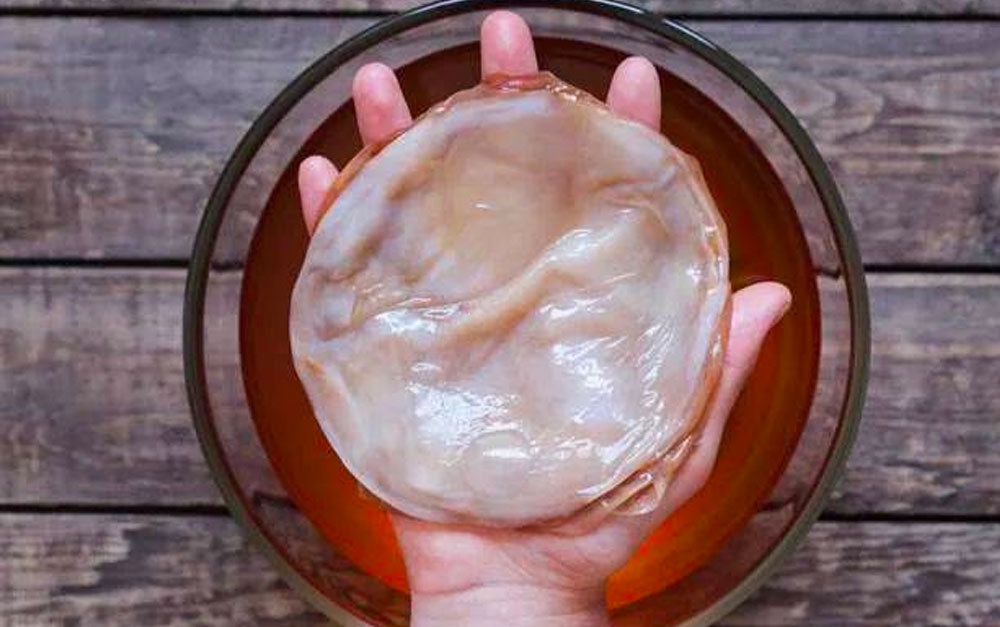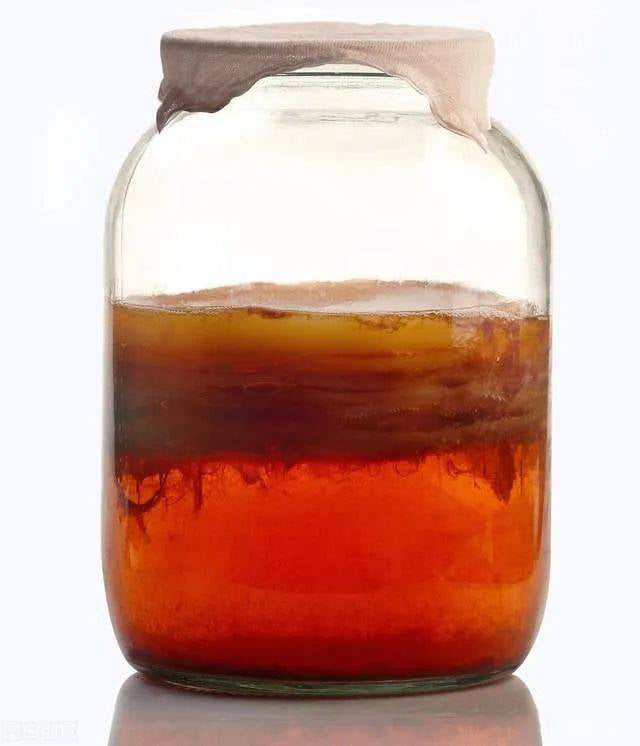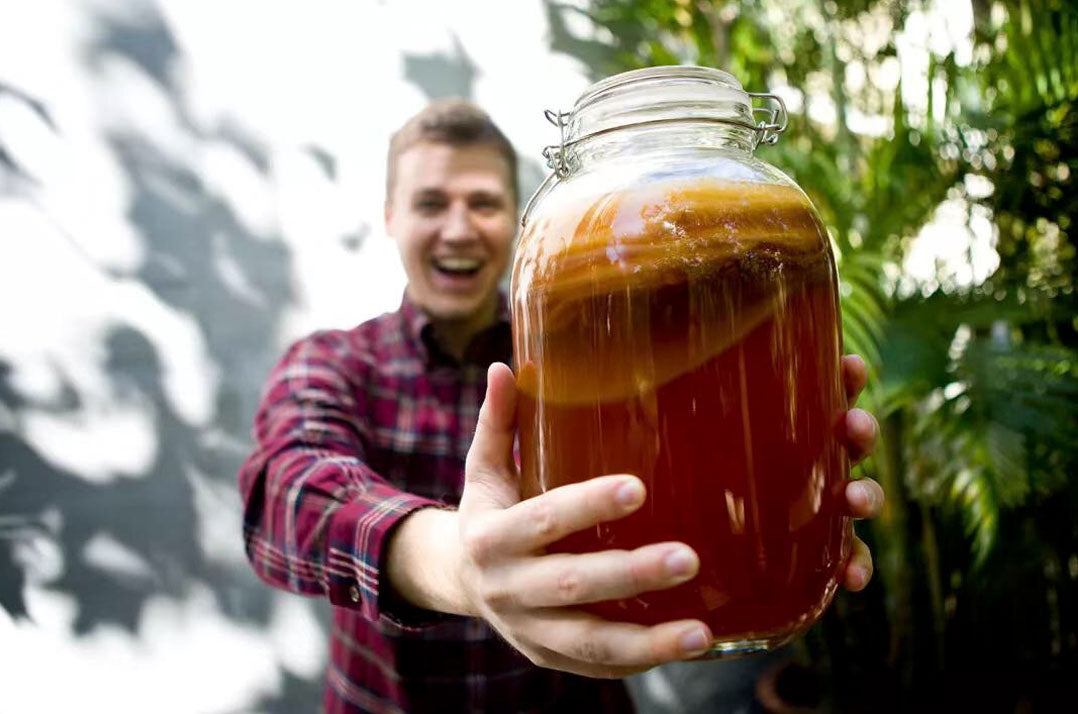This article is owned by susteas, plagiarism is prohibited
Strictly speaking, combucha is not tea because it contains alcohol and carbonic acid. Although the amount is small, it is different from the direction of drinking tea. However, it is related to tea and can be said to be a tea beverage.

Kombucha is very familiar to the Chinese or those who experienced it in the 1960s and 70s, it is "kombucha". Many people make kombucha by themselves-brew tea with hot water, pour it into a large wide-mouth glass bottle, add sugar, place it in a warm place, put on the bacterial membrane, and then wrap the mouth of the bottle with breathable gauze , Then fix it with a rope or rubber band, put it in a cool place, ferment for 7-12 days, and then drink. That's right, Kombucha is made using the same process, not necessarily black tea. Oolong tea or cooked Pudu can be used, but the black tea soup has the highest fermentation rate and rich flavor.

The prepared Kombucha is similar to another drink "Kvass". SCOBY (Symbiotic Culture Of Bacteria and Yeasts) uses tea and sugar as nutrients to convert carbon dioxide, trace alcohol and acetic acid into a sour taste. Sweet and sour taste. Kombucha produces beneficial nutrients during the fermentation process, such as probiotics that help intestinal health and defecation, which can improve digestion; it also contains a small amount of vitamin C, B1, B6, B12, etc., which can enhance immunity and It has a refreshing effect; it can also help beauty and even reduce weight. Kombucha is also rich in antioxidants, which can protect the liver from toxicity and help protect the human body from harmful bacteria.
However, it is essentially a food and does not have medicinal functions. And there is really nothing magical. If traced back to the source, it actually first appeared in China's Qin Dynasty more than 2,000 years ago. Later, it spread to Eastern Europe through the Western Regions, and then to Western Europe. There are many reasons for this concept to be hyped again, but the topic of "the meaning of probiotics to the human body" is actually an enduring field.

The probiotic in Kombucha is Kombucha, which is abbreviated as "SCOBY" in English. Kombucha is essentially a symbiotic flora, that is, it is not a kind of bacteria, and the metabolites of one kind of bacteria happen to be the nutrients of another kind of bacteria. Generally speaking, the bacteria contained in SCOBY are mainly yeast, acetic acid bacteria and lactic acid bacteria. The nutrition they need is actually the sugar added to the tea. They break down sugar to produce acetic acid, alcohol, and whole tea flavors. It becomes sweet and sour, with rich layers. In addition, these bacteria can also produce cellulose, so they can turn into jelly-like solids and float thickly in liquids. Vinegar brewed in many places in Shanxi, such as aged vinegar or fruit vinegar, sometimes produces "vinegar moths". The reason is the same. The three major strains of Sichuan traditional kimchi-Lactobacillus plantarum, Lactobacillus brevis and Saccharomyces cerevisiae, are actually the same healthy probiotics.

When kombucha is turned into a bottled drink, extra sugar is added to neutralize the overly sour taste; and relative to its alcohol content of less than 0.5%, some people add extra alcohol to change it from a soft drink to a hard drink. The drink becomes "hard kombucha." Is this kombucha not valuable? Everyone has their own settlement method. There are many alternatives to Kombucha, such as other kinds of probiotic drinks, as well as enzyme drinks and so on. Therefore, will this "kombucha fire" prediction really become a reality? We will wait and see.Click on me to learn more about kombucha brewing






